DEE DEE BRIDGEWATER / “Afro Blue”
For so long, for so many women of color, we’ve been afraid to embrace our ‘blackness’ fully, whole-heartedly. We’ve waltzed around our color, the many hues of browns and beiges. But we are in the twenty-first century, where the world is upside down, where nothing is as it seems.
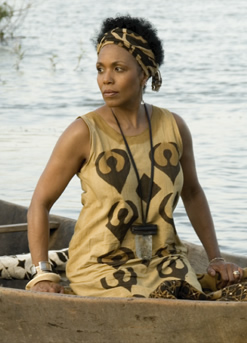
In these desperate times, I have felt the yearning to go back in time. I’ve felt the need to finally stand up and admit that my origins stem from the Motherland. Oh, sure, like so many of my brothers and sisters around the world, my lineage is of mixed bloods. We bear the traces of history itself. In my bloodline alone there is Chickasaw, Cherokee, Irish, German, and even Chinese. And those are just the ‘lines’ that can be traced.
However, until recent years there was an invisible line that few people of the darker hue chose to cross. It was as if we did we would be contaminated, condemned. But my spirit grew restless, my physical being began to make visible statements, my music began to turn to rhythms, to the drum. I instinctively knew it was time…time to find my way home. And so, as it is impossible for me, like so many of my sisters and brothers of the darker hue, to trace my past, I decided to let the musical universe be my guide. Africa was calling, but I was not sure which part of Africa. Not until I heard a particular music, from a particular land, did the call become distinctively clear.
The calling was so strong, so forceful, that I had to heed its inaudible cry. I took wing, and was guided to the land of my forefathers. The RED EARTH has always spoken to me, from the time of my birth in Memphis, Tennessee.
When I touched the red earth of Bamako, when I inhaled the Malian air, when I heard the tambours, and listened to the griots, I felt my spirit begin to dance.
I saw myself in the people; I saw that our customs were the same. I found the answers to long-standing questions about the ‘how’, the ‘where’, and the ‘why’. I was invigorated and inspired; my soul was filled with an inexplicable peace.
This project is my ode to Mali and to Africa; it is the story of a lost child finding her way home. It is my reawakening. And I hope it stirs your spirit, that it inspires you to begin your own personal journey.
“RED EARTH” - A Malian Journey is simply put, my journey home.
— Dee Dee Bridgewater
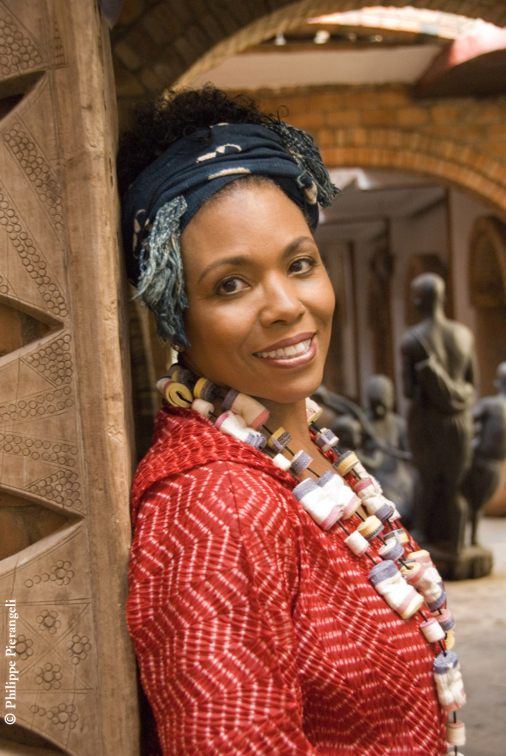
They—the anonymous experts on everything—say that Dee Dee went to France to find herself, never bothering to ask themselves how is it a person has to leave home to find themselves? Or to put it another way, what is missing, what’s so foreign about our native land that some of us are compelled, indeed forced, to leave where we were born in order to find a space we can truly call home?
From my vantage point, Dee Dee went to France to be free to be Dee Dee. When she went to Mali, that’s where she found her self in all the others surrounding her there.
Is it not so: the truest home is that place where in the others who inhabit that space you actually see yourself? Not just a physical reflection, but ways and attitudes, taste and touch, habits and inclinations, food and weather, feeling and sound. Or as the jazz musicians would say: you’ll known when you get there.
Do I have to state how hard it is for Black us to see ourselves in mainstream America? We call out but there is no positive response. The reflections we mostly catch are us on the run, or hung, or socially twisted, certainly an unhealthy taste of dissatisfaction fouling our mouths.
For us, America is a house of funny mirrors, distorted mirrors. Mirrors so convincing that sometimes we are convinced it is us who are twisted, distorted rather than mirrors into which we are forced to peer.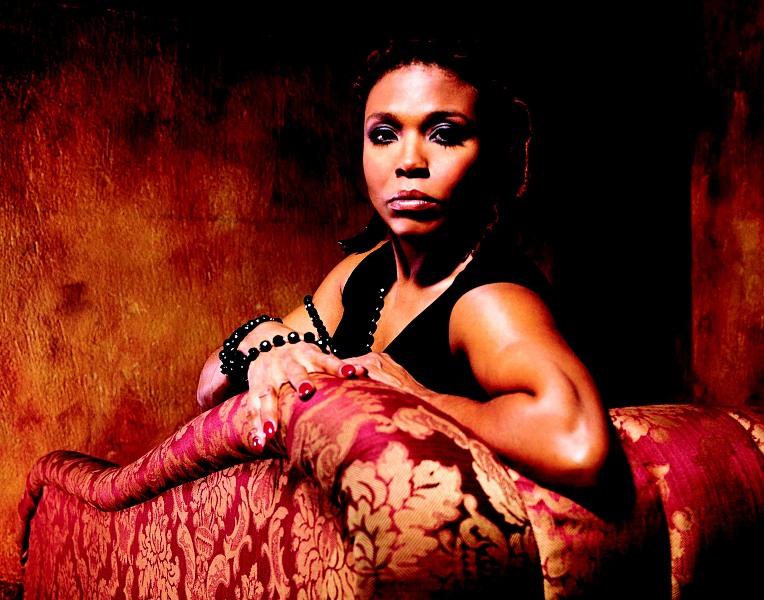
But on the other hand it is not just home that hellish; even France turned on Dee Dee, strangeness returned when she cut her locks and had short hair. Her presence was then perceived as a threat or at best an annoyance. Anyway, let’s talk about the music.
Dee had been to Senegal and though it was an interesting trip, she felt no spiritual embrace. Then she embarked on a project to record music from various African countries, music which, for one reason or another, she enjoyed. Gradually the realization dawned: the music she really liked was Mali’s vibes. So she went to see and you know the rest.
Black male blues musicians have long been fascinated with Mali. Taj Mahal and Corey Harris in particular have both made magical music with Malian musicians. But as far as I know, no Black woman vocalist had made that particular long journey into the origins of her sound.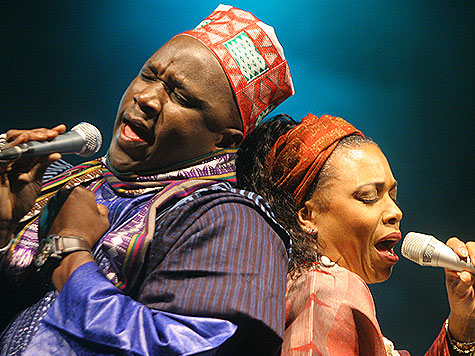
When I heard Red Earth I was immediately struck by the freedom sound. This was not a jazz artist trying to go native nor the other way around. Everybody was doing them and some magical how the different selves meshed into a truly moving “us.”
In interviews, Dee Dee talks about how the music not only felt right, she was easily able to add her flavor to the mix without messing up the meal, a meal that was based on centuries old recipes and ingredients.
Go here for a video interview with Dee Dee Bridgewater.
Go here for a short video about the making of Red Earth.
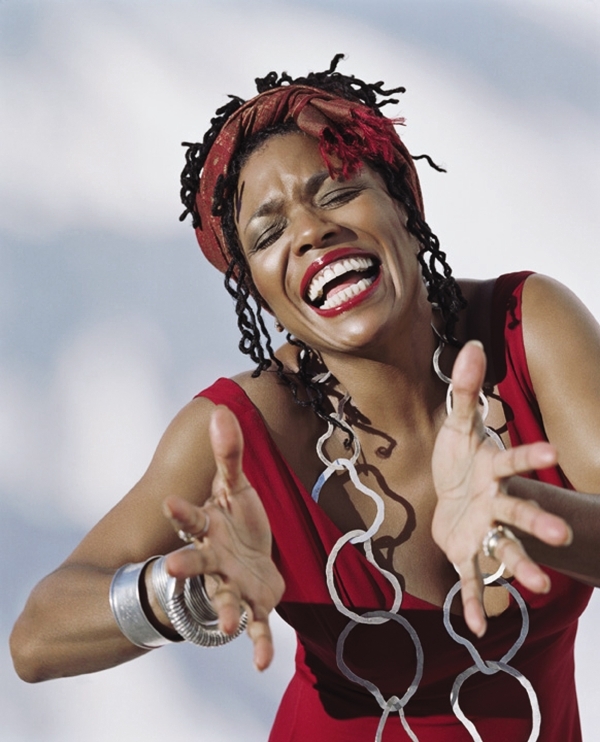
1. “Afro Blue”
It will help you to fully appreciate what Ms. Bridgewater has achieved if you skip ahead in the jukebox to the second "Afro Blue" from a 1974 recording. That version is from the beginning of recording career when she started out as a jazz vocalist. You can hear the African elements added in; the thumb piano and the percussion touches. But it is clearly a jazz version.
Now the “Afro Blue” from Red Earth is a whole other level. Baba Sissoko’s killer talking drum is orating some heavy shit—the rapidity of the beats not missing a beat. Puerto Rican pianist Edsel Gomez hammers scintillating Afro-Cuban rhythms on top of the mélange of poly-rhythms while Dee Dee elegantly floats her long tones over the fast-paced staccato of the rhythm section.
There is very little “blue” in this red hot version bubbling with joy and dance. I have at least a dozen versions, but this one is easily the most distinctive.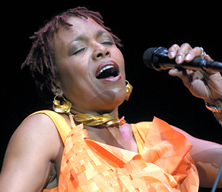
2. “Red Earth (Massani Cisse)”
A fair number of ethnomusicologists and blues practitioners identify Mali as the ancestral home of the blues. After listening to “Red Earth” I’m convinced the case has unarguably been made. That blues riff is immediately recognized. But then the African vocalists slide in with the off-kilter keen and fit right in the pocket.
This is blues so nasty it’s almost embarrassing. And then on the out chorus when everybody is singing full out but in different languages and with altered melodies, man, it’s an amazing display. I love it. I love it.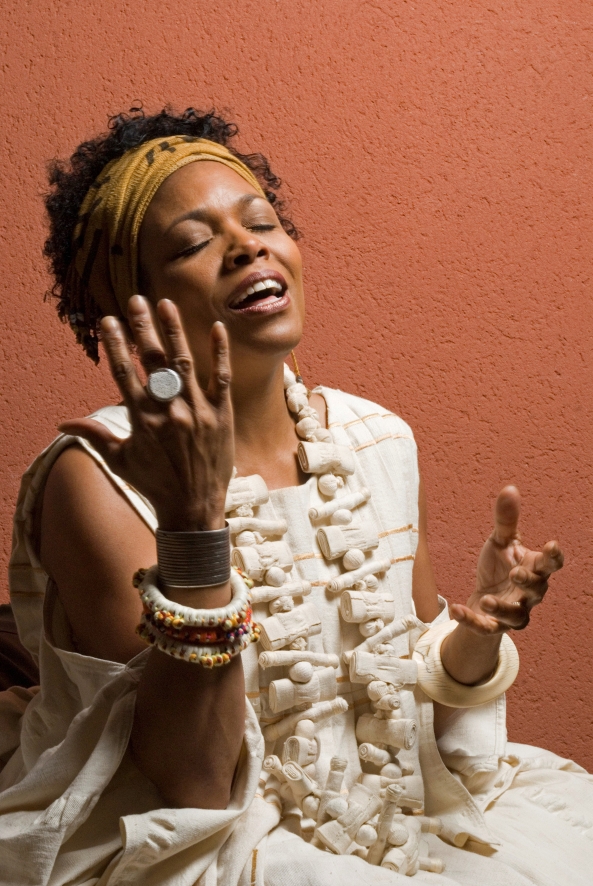
3. “Footprints”
What can we say? This sounds like what Wayne Shorter's “Footprints” should have always sounded like. Wherever this arrangement came from, it’s magical. I especially respond to the layering of rhythm on top of rhythm that all the instruments do.
This is the kind of interpretation that brings us total newness, offers us a whole new way to hear what we thought we thoroughly knew. Also interesting is how clearly this is not jazz and yet how much jazz is contained within this music. Listen to the out chorus, once again they are dropping advanced rhythm science.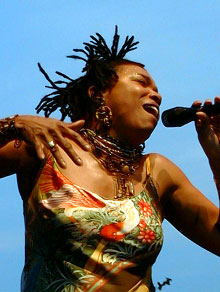
4. “Oh My Love (Diarabi)”
On this cut Dee Dee more than meets Africa halfway. This a journey into the beautiful jungle of us, into the love forests and fields of us. Here you can definitely hear the African/Mali approach rocking on a heavy two step and then Dee Dee blowing back with African-American inflections. No mistaking one for the other, yet they are joined at the hip. Lovers from different cultures locked in an amorous embrace.
This is that crying kind of love making. It be so good, joy tears just be making diamond mines out of your eye sockets. Rich, beautiful tears; you feel so good, you cry. “Oh My Love.” This song is definitely correctly named.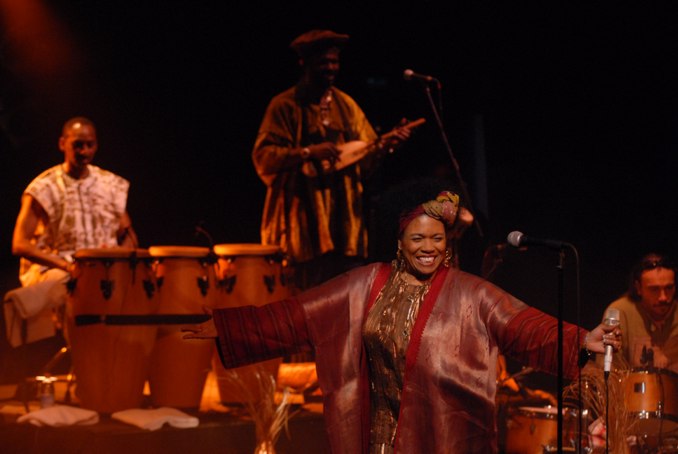
5. “Compared To What”
How the funk do you get down without a backbeat? Listen to this one. Listen when we expect a breakdown the drummers step up. And when Malian rapper Larry "King" Massassy comes strutting thru shouting out new lyrics in Bambara and then that organ from musical director Cheick, Tidiane Seck, ah man, it’s insanely gorgeous.
I bet you they can do this one for at least a half an hour in the club. I can see the tapestry of the dance floor, all the syncopated hips, the angles of the bodies in motion. God damn if this is not a different funk. Five minutes of stank and not nary a back beat. I’m too through. I know I said it already, but, wow, I have heard tons of funk and beaucoup African music but I have never heard a mix as amazing as this; a mix in which each element remains itself while mating perfectly with the other. Shit, you ought to get both street cred and college credit for rocking with Ms. Bridgewater’s Red Earth album—that’s how bad, how deep this shit is.
Damn, you may now go ahead and hit the back button four or five times. I know you wanna, so, like we say in the NOLA, go on and do what you wanna!
—Kalamu ya Salaam
Hitting the back button
You got that right, Baba. I'm definitely hitting the back button on this one. I'm feeling every track I've heard. "Oh My Love," "Footprints," "Red Earth" - all fantastic. You're right about that blues, by the way. That's some bad-ass, back-in-the-day Albert King/Solomon Burke-type soul/blues/funk they're throwing down on "Red Earth." Mali, huh? Very interesting.
One thing I have to say, even though you already said it yourself. This is the best version of "Afro Blue" I've ever heard. The percussion work alone is enough to make me want the entire CD. The arrangement is so vibrant and amped up! About a year ago, Kalamu featured six versions of "Afro Blue" and I threw in my favorite version of the tune too (as performed by the Peruvian singer Susana Baca). Dee Dee's new cover of the song blows away all the others...and those others were good.
It's been a while since I was this impressed by a new jazz album. What I like most about the music is that Dee Dee and her band stuck to playing jazz, including fully realized improvisation, even as they integrated what they were doing with the beautiful playing of the Malian musicians. This is a great album; I'll be buying my own copy soon. One question though. How in the world is "Afro Blue" not the feature song?! It's too good to just be a jukebox track.
—Mtume ya Salaam
Afro Blue It Is
Mtume, I trust your judgment call on this one. And by the way, go to the video hook-up and you can see them working on Afro blue in the studio. Dee Dee Bridgewater is an absolute monster.
—Kalamu ya Salaam
This entry was posted on Sunday, September 9th, 2007 at 2:28 am and is filed under Contemporary. You can follow any responses to this entry through the RSS 2.0 feed. You can leave a response, or trackback from your own site.
One Response to “DEE DEE BRIDGEWATER / “Afro Blue””
September 14th, 2007 at 6:48 pm
i am digging “afro blue” and the rest of the Red Earth album so much guys, thanks
Leave a Reply
| top |